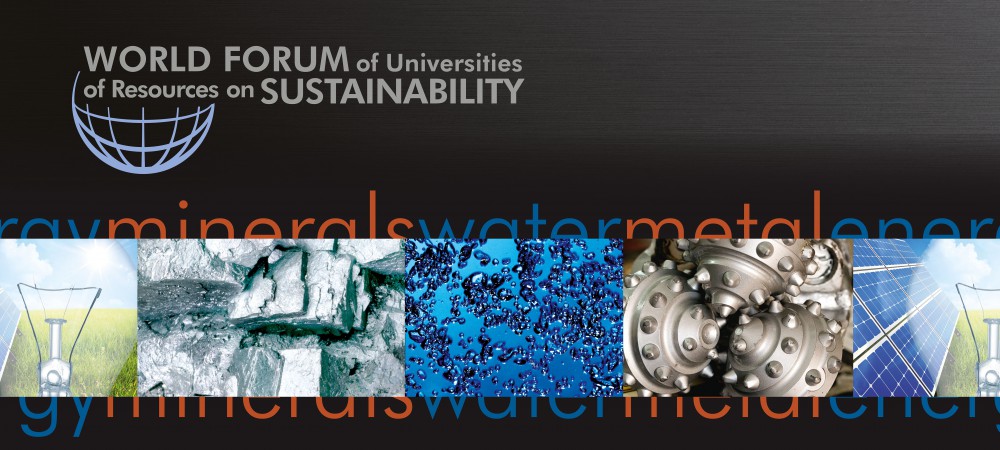Measures |
 |
 |
 |
 |
 |
Implementation
The Resource Universities obligate themselves to implement the necessary measures, considering the specific situation of the country and university:
- to augment the level of public resource awareness and to advocate a knowledge-based, neutral shaping of public opinion
- to define education standards for sustainability of raw material processes with regard to content and quantity,
- to ensure a close relationship between theory and practice
- to promote scientific research as the fundament toward a higher level of educational quality
- to carry out quality control of the educational standards
- to ensure that relevant teaching content is freely available
- to promote the mobility of students and lecturers with regard to encouraging an exchange of teaching contents and methods as well as knowledge
- to develop a lasting international network
Activities
To realise these goals, the Resource Universities oblige to form working groups (initially) dealing with the following topics:
Responsibility of Universities:
- Change of common paradigms
- Reducing non-sustainable development
- In addition to the earth resources as defined in the MoU, we have to consider the following:
- Need to distinguish between fresh water and ocean water bodies
- Impact on biosphere and landscapes
- Urban mining
- Recycling
- Guideline development for cross-boundary resource utilisation
- Information exchange and conference organization based on Internet, e-learning, new media
- Development of common curricula and research
- Quality control for teaching and research
- Preparation of a concept for the development of resource awareness in society
Education:
- Analysis of existing study programmes on raw material processes and of existing consideration of the aspects of sustainability
- Analysis of the strengths and weaknesses
- Definition of minimum requirements of teaching contents and volume regarding sustainable development in courses of study on raw material processes; the curriculum must be concise, not overloaded; integrated approaches and electives recommended
- Development of appropriate teaching methods to support capacity building and entrepreneurial skills
- Preparation of teaching materials and integration of best practice of sustainability science in training and further education programmes
- Assurance of student mobility (excursions, partial studies, …) and of lecturers for the exchange, supplementation and qualification of teaching contents
- Development of a new national and international study programme with a focus on sustainable raw material processes
- Development of accreditation and certification tools for the quality assurance of the study
- Development of key courses for sustainable development and for remote teaching
- Development of interdisciplinary and transdisciplinary team teaching methods involving social, engineering, economic and natural sciences.
- Including appropriate technology for artisanal and small-scale mining
International Networking:
- Policy document preparation for a permanent World Forum on Sustainability (WFURS)
- WFURS membership standard development
- Ideas and suggestions for WFURS financing
- Guideline development for cross-boundary resource utilisation
- Concept development for regular information exchange and conference organization
- Internet platform development to provide the latest information and teaching content
- Establishment of a brand and of respective honours
- Preparation of information and publicity material
